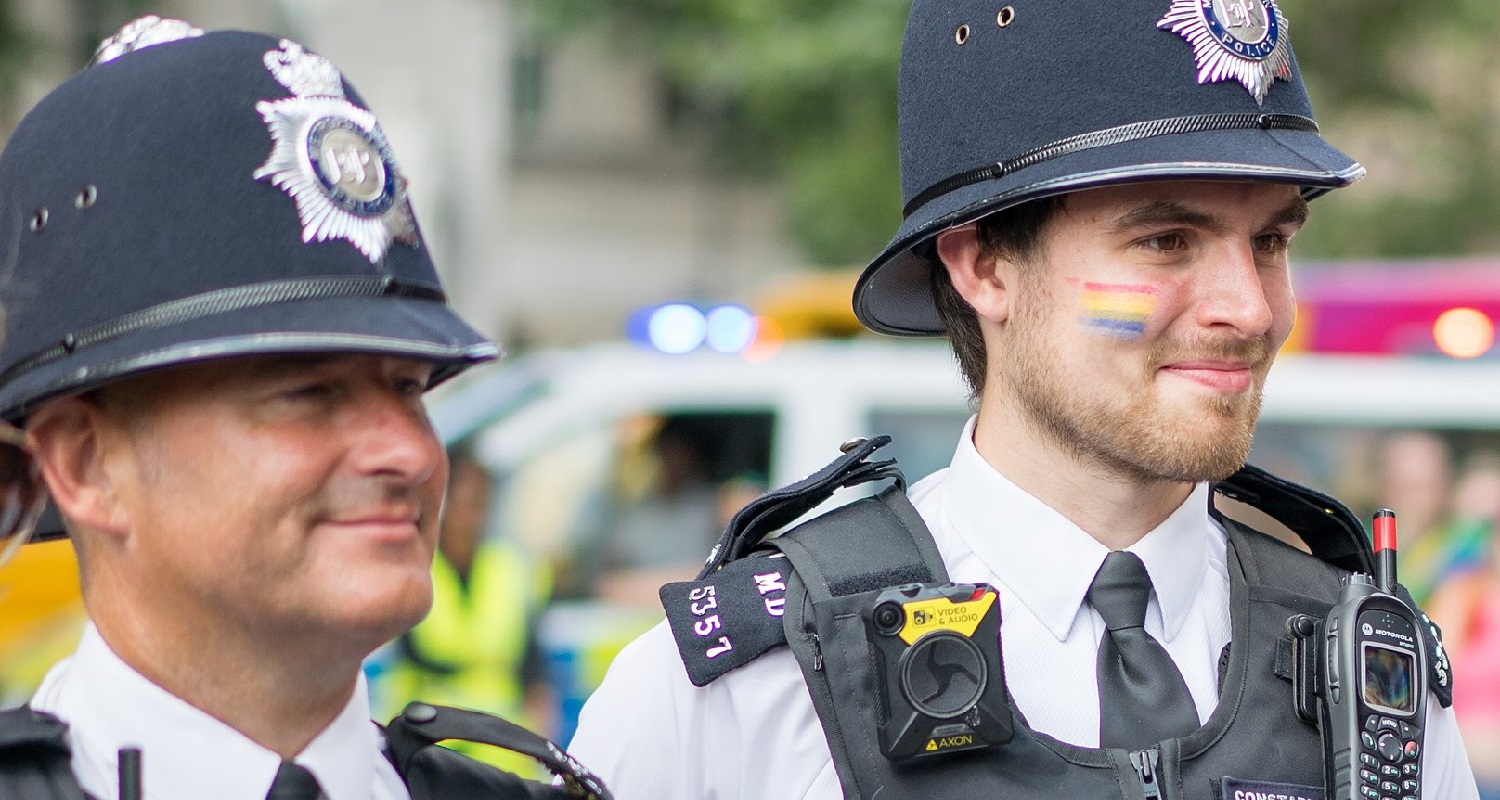Police officers shouldn’t wear Pride badges, says outgoing police chief
Sir Tom Winsor, Her Majesty's Chief Inspector of Constabulary, has told LBC, that officers should not identify with "any political opinion."

Words: Alastair James; picture: Wiki
The outgoing Chief Inspector of Constabulary, Sir Tom Winsor, has said that police officers shouldn’t wear Pride badges because “it’s not popular with everyone.”
Speaking to LBC this morning (11 March) Sir Tom argued that supporting ‘political’ movements “does damage to public confidence” and that other police “should not identify itself or associate itself with any political opinion.”
As he left his role this week, Sir Tom filed a report on Thursday (10 March) saying that officers shouldn’t be focused on “thought crime” but on laws that currently exist.
“It just isn’t ok”
Asked about officers taking the knee or showing support for other social causes, Sir Tom said those had been “mis-steps” and the police should focus on the “impartial and the objective enforcement of the law.
“You cannot do that if you are wearing something on your uniform which associates you with a particular point of view. It just isn’t ok. It’s not professional,” he continued.
Sir Tom added that gay pride badges also shouldn’t be allowed because “it is associating yourself with what is perceived to be a widely popular opinion, it’s not popular with everyone.”
His comments about the Pride flag were in response to whether officers could wear a Ukrainian flag in recognition of the conflict, to which Sir Winsor also said: “If they take a Ukrainian flag, what’s the next flag they are going to wear?”
In his final report in post he wrote “there is no such thing as a thought crime” and that “hatred of a particular person or persons with certain characteristics is not, of itself, a crime. Hatred is an attitude of mind.”
He also said that “It is not appropriate for senior police officers, serving or retired, to assert a right of the police to declare anything criminal, least of all what people may think.
“They have no legal power to create criminal offences in their police areas or anywhere else. It is important that no one is misled: the police enforce the law, they do not make it.”
In 2016, Sue Fish, the then Chief Constable of Nottinghamshire Police, began recording misogyny as a hate crime.
The Metropolitan Police defines a hate crime as:
“Any criminal offence which is perceived by the victim or any other person, to be motivated by hostility or prejudice based on a person’s race or perceived race; religion or perceived religion; sexual orientation or perceived sexual orientation; disability or perceived disability and any crime motivated by hostility or prejudice against a person who is transgender or perceived to be transgender.”
A hate incident is any incident which the victim, or anyone else, thinks is based on someone’s prejudice towards them because of their race, religion, sexual orientation, disability or because they are transgender.
The police say that “Not all hate incidents will amount to criminal offences, but it is equally important that these are reported and recorded by the police.”
Attitude’s new-look March/April issue is out now.

